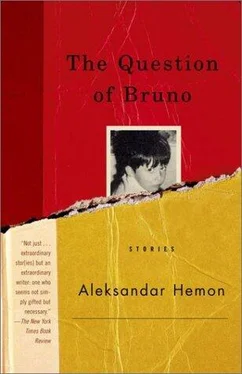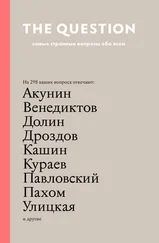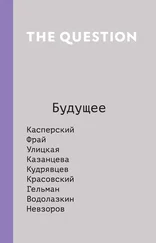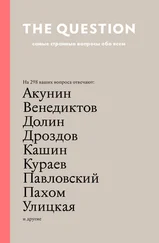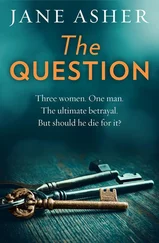Now I want the reader to assume the role of the camera, to move the objective toward me and peek over my shoulder, following my gaze. I want the camera to focus on the objects that I am about to uncover. I want the thrill of discovery to be rendered with the exactness of the detail. I want this to be documented. Turn on the light. Roll.
The left closet. First the underwear. You have to look under the neatly built pyramid of undershirts. Nothing. Under the panties. A book, with pictures: Figurae Veneris — A Love Manual. 16Men and women, naked, assuming acrobatic positions, hairy crotches. Never mind. Towels. Nothing. Bedspreads. A cloth-covered notebook, with Mother’s name written on it, with a lock, no key. Hell. Leave it as if nothing happened. Now the drawer. Sheets of paper, documents, sorted into three separate, puzzling, stacks. First stack: floor plans of a house, 17plus charts with numbers summoned at the bottom of the last page: 1,782, twice underlined. Second stack: diplomas and resumes. Flip through: “… worked to develop more efficient ways of transmitting energy … particularly interested in international nets … Sincerely.” Third stack: four files. First file: receipts. Second file: paid bills. Third file: a diploma: “… is hereby confirmed to have graduated at the University of Sarajevo and to have attained the title of Engineer and Energy Transmission Manager.” Fourth file: pictures from the wedding. Mother holding the wedding wreath. Father touching her above the left elbow, as if pushing her to step across the edges of the picture. Mother laughing, with her chin up. Father is about to spread his arms in a gesture of asking. Mother and Father in the center of the picture, a man and a woman stepping into the picture from opposite sides, with symmetrical grins. Father hugging the woman whose back is turned toward the camera (zoom). A twinkle of sweat on Father’s forehead. Mother hugging the woman (zoom). Tears reaching the nostrils. On each picture a globe lamp behind them: dazzling, fake, immobile moon. Cut.
The middle closet. Roll. First, the shelf above the suits. Boxes of slides, almost all of them from the USSR, the rest from vacations on the Adriatic coast. Random picks: the cracked Tsar’s Knoll and my father minute by its side; Father between two guards in front of the Lenin Mausoleum: Father sending a smile toward the camera, the two identical guards behind his back, eternally erecting their left legs, with skillfully expressionless faces and the slender rifles pointing toward the respective upper corners of the picture. Mother, Father in bathing suits and myself in a baby suit in the front, and Grandpa 18and Grandma behind us (Grandma wearing a black scarf and a buttoned-up black dress), on a pebbly beach, with three towels, like welcome rugs, at our feet. Look at this: Father’s camera (Laika) and a cylindrical plastic box containing a telescopic lens. A bottle of Valium 19(“Keep out of reach of children”). A stack of blank sheets. A box of envelopes. An address book. A: Aliluyev, Alexander, rue de Victorie 101, Paris; B: Bulgakov, Sergei, Andreyevski Uzhvis 45, Kiev; V: Vadimovich, Vladimir, P. O. Box 6165, Geneva. A glass, with the Sputnik (leaving the diminishing planet behind) painted on it, full of pens and unsharpened, virgin pencils. A black-and-green Pelikan fountain pen. A heap of hotel brochures: the Luxembourg Hotel, Paris — a smiling chef over a stove, with unidentifiable blots ostensibly sizzling in the pan; the Tripoli Hotel, Tripoli — a hall with dismal sofas summoned around a forlorn table, as vacuous as if every form of life was terminated by the flashbulb. A pocket notebook (zoom) with pairs of English and Serbo-Croatian words: birth —rodjenje; blind —slijep; work —rad; arrest —hapsiti; son —sin; mother —majka; money —novae; death —smrt. The right closet. Let’s go through his suits. Blue suit: nothing. Blue suit two: nothing. Black suit: nothing in outer pockets, a personal thermometer in the inside pocket. Gray suit: the Party 20member ship card, a key, a piece of paper, with a local phone number (zoom) with an “S” above it, a pack of matches (Aeroflot), a plastic spoon, a red-white-blue marble. White suit: nothing in the outer pockets, nothing in the inside pockets. Except the little pocket down here. It’s a tiny plastic cylinder, like a bottle of pills, with a gray lid, you have to press the lid down, there’s a film inside (could I have more light, please), unrolling: snapshots (negatives) of papers, one after the other, thirty-four of them, last two shots are of a river dam, it seems, and there is a miniature figure (zoom, damn it), no — can’t see. What’s on the papers? They look like documents (headings blurred), they seem to be in Russian. Would you turn off that camera and leave the room please; I need some privacy, I have just obtained proof that my father is a spy. 21
Besides greasy toys (for me) and large cans of pickled fish (for my mother) my father brought stories from the USSR: about his travels down the Volga River, passing by towns, one after the other, made of cubicles, factory smokestacks, and an enormous Lenin statue (making a step forward, pointing toward the future); about the greatest dam in the world, on the Yenisey River — watching the boiling river at the foot of the dam was “like watching the Red Sea splitting”; about the Turkmenistan people who rode purebred horses as if they’d grown out of them; about thousands of miles of taiga, where prehistoric creatures lived and where you’d never be found if you were lost; about places so cold that your blood would just stop flowing if you stopped moving; about places where vodka was so cheap that nobody drank water. Many stories featured Professor Venykov — my father always referred to him as Professor Venykov, as if that was his christened name. The stories of Venykov were stories of placidity: about long conversations by the always warm samovar, with affordable caviar and pickled pike liver; about walks down the Nevski Prospekt, while Russian children played hockey on the frozen Neva; about Venykov reminiscing about his childhood: cherry orchards around Kiev, swimming in the Dnieper, fighting, at the age of nineteen, as a partisan in the last war; 22about his beautiful wife and two girls who were solving complicated mathematical problems when not playing piano-cello duets; about chess games 23in the community sauna. My father claimed that Venykov’s home was his home in the Soviet Union.
In the late summer of 1976, upon a fabricated invitation from the Sarajevo Micronet Research Institute (which my father obtained through his connections), Professor Venykov came to visit us. He arrived at five o’clock in the morning, having driven nonstop for sixteen hours, from Budapest to Sarajevo (only a sip of vodka, once in a while, to keep him awake). He avoided ringing the bell and cautiously knocked at our door, not quite being there. Father and Mother hesitantly left the bed (Mother taking Hanna in her arms), exchanging timorous glances, not being able to step out of their respective dreams. My father looked through the peephole (“Professor Venykov!”), opened the door and snatched him inside, looking down the hall before closing the door. They exchanged exclamations for a while (Father: “Professor Venykov!” Venykov: “Ay, moy Pyotr! Moy Pyotr!”) then my father pointed toward my mother and me, making a motion with his hands as if opening the door behind which we were hidden (“Molodyets, Pyotr! Molodyets!”). Venykov had a pear-shaped body on the top of which there was a bald head (with a wart, like a miniature knob, on his forehead). His eyes were tired — red cracks were rushing toward turquoise irises. Behind the smell-screen of sweat, onion, and vodka, I could still discern the oily odor of my toys.
Читать дальше
